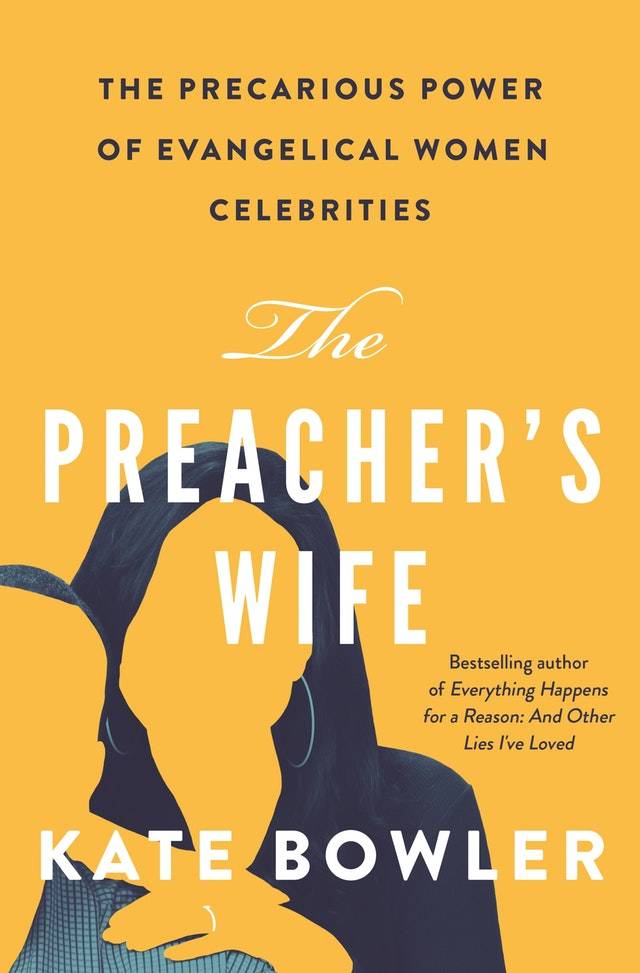
The exploration the public lives of the “first ladies” of America’s Christian evangelical megachurches and an intimate portrait of the joys and hardships of rural life in Appalachia are among the new noteworthy books by Duke authors this fall.
Many of the books, including new editions of previous titles, can be found on the "Duke Authors" display shelves near the circulation desk in Perkins Library. Some are available as e-books for quick download. Most can also be purchased through the Gothic Bookshop.
[Duke Today will provide similar updates in the future. If you are a member of the Duke faculty or staff who will be publishing a book of interest to a general audience, send us a message about it along with your publisher's brief description.]
Matthew D. Adler: “Measuring Social Welfare: An Introduction” (Oxford University Press, October 2019)
As politicians argues over the best way to evaluate the impact of government policy on individuals and communities, Adler, a Duke law professor, makes recommendations that advances the debate. He shows that adding two measures of social welfare significantly improves assessment and evaluation of policies. Adler is the founding director of the Duke Center for Law, Economics and Public Policy. He discusses the book in a Duke Law interview.
Justin Barr: “Of Life and Limb: Surgical Repair of the Arteries in War and Peace, 1880-1960” (University of Rochester Press, Nov. 1)
In 1880, patients suffering from vascular disease faced amputation -- or death. By 1960, a suite of revolutionary techniques and technologies empowered surgeons to remedy aneurysms, mend damaged vessels and treat arteries clogged with cholesterol, saving the lives and limbs of patients around the world. Tracking this remarkable transformation, Barr, who is in residency for general surgery, reveals how social, technological, institutional and military dynamics all helped to accelerate surgical innovation.
 Kate Bowler: “The Preacher’s Wife: Women and Power in American Megaministry” (Princeton University Press, October 2019)
Kate Bowler: “The Preacher’s Wife: Women and Power in American Megaministry” (Princeton University Press, October 2019)
Divinity School professor, historian and Duke alumna Kate Bowler explores the public lives of the “first ladies” of America’s Christian evangelical megachurches -- women such as Beth Moore, Priscilla Shirer, Joyce Meyer and their search for spiritual authority in an era of jumbotrons and searing stage lights. She looks at the success of women “who negotiated places for themselves and re-made popular religion into a woman’s playground.” She discusses her book in a Divinity School story.
Laurent Dubois, co-author: “Freedom Roots: Histories from the Caribbean” (UNC Press, Dec. 16)
In this story of the vast archipelago, Dubois and William & Mary associate professor Richard Lee Turits chronicle how the Caribbean has been at the heart of modern contests between slavery and freedom, racism and equality, and empire and independence. "To tell the history of the Caribbean is to tell the history of the world," they write. Dubois is a Duke professor of history and romance studies.
 Martin Eisner, co-editor: “A Boccaccian Renaissance: Essays on the Early Modern Impact of Giovanni Boccaccio and His Works” (University of Notre Dame Press)
Martin Eisner, co-editor: “A Boccaccian Renaissance: Essays on the Early Modern Impact of Giovanni Boccaccio and His Works” (University of Notre Dame Press)
A diverse group of scholars respond to the largely unaddressed question of Boccaccio’s impact on early modern literature and culture in Italy and Europe. Eisner, an associate professor of Romance Studies, has co-edited this first comprehensive examination in English of the Latin and vernacular works of Boccaccio, including “The Decameron” and “On Famous Women.” The work comes out of a conference held at Duke University.
Christine Folch: “Hydropolitics: The Itaipu Dam, Sovereignty, and the Engineering of Modern South America” (Princeton University Press)
Folch, an assistant professor of cultural anthropology and environmental science and policy, investigates the world’s largest power plant and the ways the energy we use shapes politics and economics. She discusses her work in Duke Today.
Nora Hanagan: “Democratic Responsibility: The Politics of Many Hands in America” (University of Notre Dame Press)
Nora Hanagan, a visiting assistant professor of political science, draws on the political theory and practice of Henry David Thoreau, Jane Addams, Martin Luther King Jr. and Audre Lorde -- American thinkers and activists who offered an alternative to individualistic conceptions of responsibility. “Democratic Responsibility” offers insight into how political actors might confront seemingly intractable problems, and challenges conventional understandings of what commitment to democratic ideals entails.
Wesley C. Hogan: “On the Freedom Side: How Five Decades of Youth Activists Have Remixed American History” (UNC Press, Dec. 16)
Hogan, director of the Center for Documentary Studies and a Duke Ph.D. graduate, documents young people's interventions in the American fight for democracy and its ideals. To Hogan, the legacy of Ella Baker and the civil rights movement has often been carried forward by young people at the margins of power and wealth in U.S. society. Read more in this Duke Today story.
Fredric Jameson: “Allegory and Ideology” (Verso)
Fredric Jameson, a professor of comparative literature and of Romance Studies, takes on the allegorical form in this new work. Jameson, who is director of the Center for Critical Theory, is an internationally known literary critic. His books including “Marxism and Form” (1971), “The Political Unconscious” (1981), and “Postmodernism, or, The Cultural Logic of Late Capitalism” (1990).
Rhonda M. Merwin, Nancy L. Zucker, co-authors: “ACT for Anorexia Nervosa: A Guide for Clinicians” (Guilford Press)
Merwin and Zucker, associate professors in psychiatry and behavioral sciences, have co-authored the first book to present a roadmap for tailoring acceptance and commitment therapy (ACT) to the complex challenges of anorexia nervosa.
Beverly Murphy, co-editor: “Diversity and Inclusion in Libraries: A Call to Action and Strategies for Success” (Medical Library Association Books Series) (Rowman & Littlefield Publishers)
Beverly Murphy, the assistant director for communications and web content management at the Duke University Medical Center Library & Archives, offers best practices strategies that will help libraries be more inclusive in their services and collections.
 Senthil Radhakrishnan: “I Have No Earthly Idea” (Kanvi House Publishing LLC)
Senthil Radhakrishnan: “I Have No Earthly Idea” (Kanvi House Publishing LLC)
Radhakrishnan, a Duke neurosurgery physician assistant, has written a medical love story about a physical therapist from Madras who spends his life seeking security, only to lose the one thing he holds most dear. In an interview with WRAL, Radhakrishnan says one of his goals was to establish an awareness of physician assistants in this country.
Gregory R. Samanez-Larkin, editor: “The Aging Brain: Functional Adaptation Across Adulthood” (American Psychological Association)
Brain aging -- and human aging more broadly -- has long been seen as a process of slow, and inevitable, deterioration and decline. Samanez-Larkin, an assistant professor of psychology and neuroscience, collects research in both behavioral and brain science showing that not all cognitive processes decline with age, that in fact some improve over the course of adulthood, and those that improve can often compensate for those that decline.
 Steven L. Schwarcz, co-editor, “Systemic Risk in the Financial Sector: Ten Years After the Great Crash” (Centre for International Governance Innovation, Oct. 15, 2019)
Steven L. Schwarcz, co-editor, “Systemic Risk in the Financial Sector: Ten Years After the Great Crash” (Centre for International Governance Innovation, Oct. 15, 2019)
Schwarcz, a professor of law and business, draws on some of the world's leading experts on financial stability and regulation to help examine and critique the progress made since 2008 in addressing systemic risk.
Daniel Stegmueller, co-author: “Who Wants What? Redistribution Preferences in Comparative Perspective” (Cambridge University Press, Oct. 31)
Stegmueller, an associate professor of political science, joins co-author David Rueda in explaining how the demand for redistribution is the result of expected future income, the negative externalities of inequality, and the relationship between altruism and population heterogeneity.
Jesse S. Summers and Walter Sinnott-Armstrong: “Clean Hands? Philosophical Lessons from Scrupulosity” (Oxford University Press)
For years, Kenan Institute for Ethics Senior Fellow Jesse Summers has been researching and writing about a type of obsessive-compulsive disorder (OCD) known as scrupulosity, which is characterized by irrational moral or religious obsessions and compulsive moral acts. Early conversations between Summers and Kenan faculty Walter Sinnott-Armstrong around “moral OCD” eventually led the pair to co-author “Clean Hands?” while considering, for example, how anxiety often leads people to maintain a tight and rigid focus on less important moral issues, ignoring more important moral issues.
Niccolò Terrando, co-editor: “The Perioperative Neurocognitive Disorders” (Cambridge University Press)
In a book representing the first unified source of information on this group of disorders -- the most common complications of anesthesia and surgery in older patients -- Terrando, an associate professor in anesthesiology and an assistant research professor in cell biology at Duke, has produced a practical guide on diagnosis, pathophysiology and clinical recommendations.
Charles Thompson Jr.: “Going Over Home: A Search for Rural Justice in an Unsettled Land” (Chelsea Green Publishing, Sept. 26)
Thompson writes an intimate portrait of the joys and hardships of rural life in Appalachia. Thompson, a professor of the practice of cultural anthropology, shares revelations and reflections, from cattle auctions with his grandfather to community gardens in the coal camps of eastern Kentucky, racial disparities of white and black landownership in the South to recent work with migrant farm workers from Latin America.
 Dr. Peter A. Ubel: “Sick to Debt: How Smarter Markets Lead to Better Care” (Yale University Press, Nov. 26, 2019)
Dr. Peter A. Ubel: “Sick to Debt: How Smarter Markets Lead to Better Care” (Yale University Press, Nov. 26, 2019)
Ubel, a physician and behavioral scientist, makes an informed argument for reworking the broken market-based U.S. health care system by making cost and quality more transparent.
Aarthi Vadde, co-editor: “The Critic as Amateur” (Bloomsbury Academic, Sept. 19)
Vadde, an associate professor of English, brings leading and emerging scholars together to explore the role of amateurism in literary studies. While untrained reading has always been central to arenas beyond the academy -- book clubs, libraries, used bookstores -- its role in the making of professional criticism is often dismissed. This volume explores the links between expertise, autodidactic learning and hobbyist pleasure by weaving literary criticism in and out of the university.